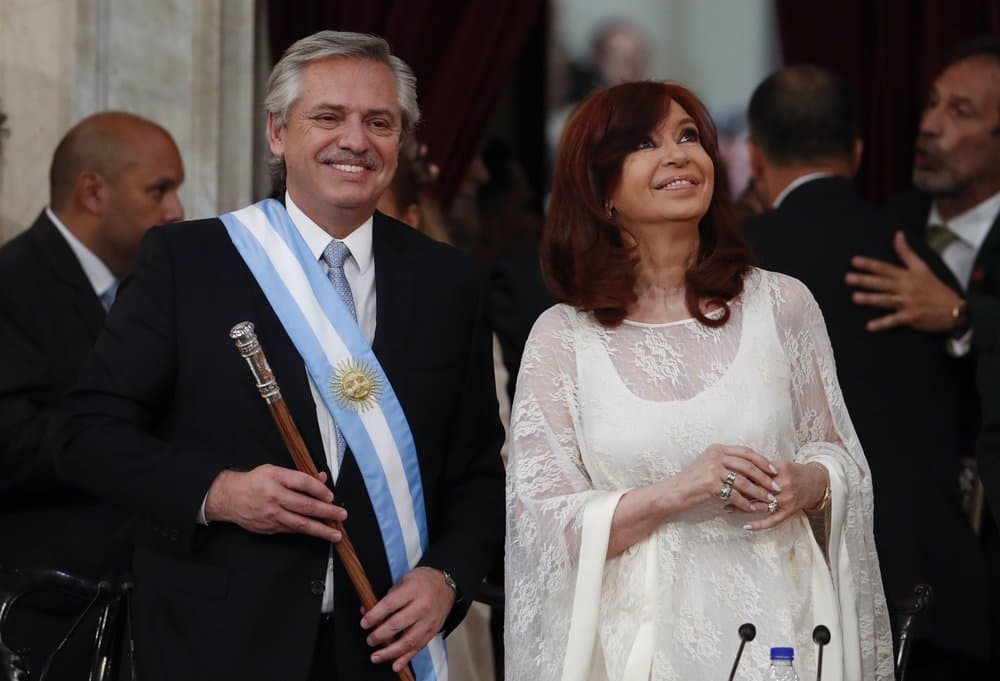ROSARIO, Argentina – Argentine President Alberto Fernandez said he’s still “committed as in the first moment” to legalizing abortion, even as the country continues its nearly 50-day coronavirus lockdown.
Fernandez said on Wednesday in a radio interview that the proposed bill to legalize abortion in Pope Francis’s homeland is “ready,” but that he hasn’t yet presented it in Congress because there are “other urgencies” amidst the pandemic.
Argentina’s Congress – led by current vice-president and former president Cristina Fernandez de Kirchner – has been shut down since the coronavirus emergency was declared in mid-March. An attempt to have an on-line session was made on Monday, but it failed, postponing efforts to re-open the legislative body.
The country’s bishops have mostly avoided open confrontation with the government on the abortion issue during the epidemic, with the exception of the auxiliary bishop of La Plata and president of the bishop’s health commission, Bishop Alberto German Bochatey.
“If we defend life now against the virus, we must defend it against any other matter,” he said. “If we’re making enormous, galactic efforts not to get sick and so that not one life is lost, how can we continue with a project to legalize abortion or euthanasia?”
During a debate to legalize abortion held in 2018, the bishops called on the laity to be at the forefront of the battle, and the faithful responded, with millions appearing on the streets to rally against changing the country’s pro-life laws.
The pro-life movement saw it as a victory when the bill failed. However, Fernandez promised to legalize abortion during his campaign, and had intended to present a new abortion bill in March. The pandemic prevented this, though several government officials have said guaranteeing the right to terminate a pregnancy was a priority, even as hospitals grappled with caring for those infected with COVID-19.
Bochatey’s comments came a day after the health ministry of the province of Buenos Aires – where La Plata is located – released a series of protocols by decree that went from preventing contagion of COVID-19 among the elderly to “guaranteeing integral attention to people with the right to voluntarily interrupt a pregnancy” during the pandemic.
“We’ve been talking about the virus for weeks, for hours and hours on end, in all the news outlets, but sometimes, the issue is reduced to showing a line of cars going into a city or the number of infected people, or of casualties, but nothing is said, or very little space is given to the spiritual needs of a person who is sick or someone who’s healthy but overwhelmed by the possibility of getting infected,” Bochatey said.
“All of this requires the complete attention to a person with his or her spiritual dimension. This is why we are, respecting the corresponding norms from authorities, continue to work in many ways to be able to help and accompany these people,” he said.
Bochetay, who’s a bioethicist and member of the Vatican’s Pontifical Academy for Life, then reflected on the fact that some “emergency protocols” are being applied during the pandemic, but once it’s over, there should be a “peaceful debate” – because even Fernandez has said that “he’s more interested in saving lives than in the economy.”
“And it’s fine because ideology can never be above life or the common good,” the bishop said. “But if we defend life now against the virus, we will defend it against any other issues,” including abortion and euthanasia, he added.
“I think we are realizing that sometimes many were very light in their statements regarding abortion and euthanasia, and this moment may make them reflect,” Bochatey said. “We all agree that we are not going to get out of this [pandemic] being the same. This is why I hope that we can have a much more serene, non-ideological debate, without fanaticism – a humanistic and anthropological dialogue – and save and care for everyone’s life.”
Abortion is illegal across most of Latin America, with notable exceptions being Cuba, Guyana and Uruguay. Though the Fernandez’s government has approved a protocol that makes the termination of a pregnancy available in several places, abortion is technically only allowed when a pregnancy is the result of a rape or if the life of either the mother or child is at risk.













